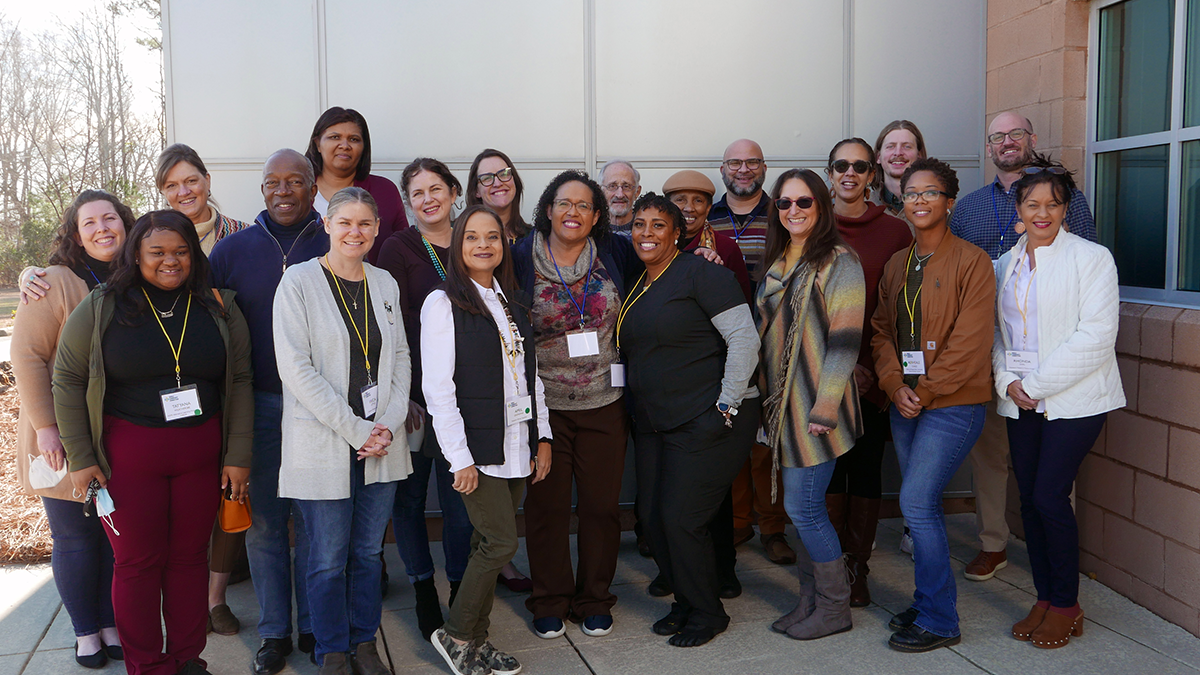Whole Together Robeson helps rural mothers and children
Part of Whole Community Connection, the project draws on resources at Carolina, UNC Pembroke and the local community.

In rural Robeson County, if you don’t have your own ride, it’s tough to get anywhere.
That’s one of many barriers that residents encounter when seeking health care services. Robeson County’s robust and diverse community infrastructure includes many people and organizations working to dismantle these barriers and others that are more systemic: poverty, discrimination and a lack of available resources.
Among those organizations is the team behind Whole Together Robeson, a community-based partnership with UNC System schools aiming to improve health outcomes for rural mothers and children. The team includes mothers in the community, local public health organizations, providers at UNC Pembroke and Carolina researchers.
The project is a part of Whole Community Connection, a Carolina program that seeds community-academic partnerships between community organizations in Robeson and Edgecombe counties and Carolina faculty with the goal of improving rural health outcomes.
Whole Together Robeson’s goal is to improve maternal and child health in Robeson County by supporting mothers’ emotional health and wellbeing from pregnancy through the first four years of a child’s life.
The Whole Together Robeson team includes:
- Erica Little, director of the Office of Regional Initiatives and director of Healthy Start Robeson at UNC Pembroke.
- April Oxendine, health promotions coordinator at Robeson County Health Department.
- Brittany Gordon, director of perinatal services and Healthy Start at Robeson Health Care Corporation.
- Sarah E. “Betsy” Bledsoe, associate professor in the School of Social Work and co-director of the National Initiative for Trauma Education and Workforce Development.
- Anna Fetter, postdoctoral research associate in the College of Arts and Sciences’ psychology and neuroscience department.
Part of Carolina’s mission is to extend knowledge and resources across North Carolina to enhance quality of life for all people in the state. Beyond Chapel Hill, that work is best done in partnership with other universities within the UNC System. For Whole Together Robeson, partners from Healthy Start Robeson at UNC Pembroke, who are deeply experienced in supporting maternal health in their community, are critical to Carolina’s efforts to serve North Carolinians. These partners coordinate to identify health needs in their community and help develop interventions to address those needs.
The team has been working in Robeson County since the 2017 MI-PHOTOS project, which earned an Office of the Provost Engaged Scholarship award in 2020. That project laid the foundation for the team to launch Whole Together Robeson.
“We know that one of the best ways to support children is to support their care providers,” said Bledsoe. “We have evidence showing that when mothers receive the support and the resources they need to be healthy, their children fare much better. That’s critical to the goal of having healthy people and communities and that’s why this work is important.”
Little, the director of Healthy Start Robeson, says they do “anything we can do to make sure that rural mothers have access to health care and resources for themselves and their child.” They provide all-around support to mothers in the perinatal period to help achieve this goal. At times, that means giving them a ride. According to Little, transportation is one of the biggest barriers to health equity that Robeson County families face.
For this team, helping to create healthier communities in rural North Carolina is worth every bit of extra effort, Bledsoe says.
“Health inequities hurt us all. When children are automatically disadvantaged due to poverty, place or discrimination, it doesn’t just hurt them, their families, and their communities. It hurts everyone because we’re limiting their potential.”







